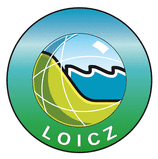The formation of water user groups in a nexus of central directives and local administration in the Mekong Delta, Vietnam
Vietnam’s agrarian system has profoundly changed since the government initiated its renovation policy in 1986. Various policy directives and institutional reforms have been aimed at increasing the production of cash crops for the export markets and ensuring the nation’s food security. The government has undertaken considerable investments in irrigation and water control to boost local rice production, especially in the Mekong Delta. Today, a large water bureaucracy plans, implements and maintains the hydraulic infrastructure, but farmers have to contribute to funding and managing the irrigation systems. In this context, water user groups started to emerge from the 1990s onwards. This study on the trajectory of group development in Can Tho City shows that party-state authorities strongly stimulate group formation processes and organise the collaboration between farmers and the state. As a result, water user groups have become an integral part of local water management and instrumental in meeting the state-mandated production targets in agriculture.
Full text: download




